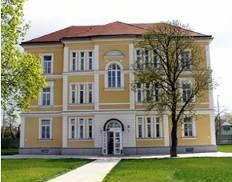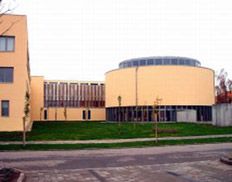Майстер-клас угорського професора Б.САБО на тему: “Еволюція Європейського договірного права та поточний стан уніфікації”
Тема:
Еволюція Європейського договірного права та поточний стан уніфікації
Актуальність та мета курсу: Європеїзація приватного права у сфері забезпечення міжнародних відносини в області товарообігу та послуг розвивається у двох напрямках. З одного боку, директиви Європейського Союзу намагаються уніфікувати основи міжнародного права, з іншого боку, сьогодні є необхідним визначити подібні риси та відмінності приватного міжнародного права, які склалися протягом століть та порівняти їх із загальними принципами європейського приватного права та гармонізувати їх у одному нормативному акті. Зазначені обставини сприяли появі проектів нормативно-правових актів, мета яких – створити стандартний уніфікований нормативний акт європейського приватного права (можливо Кодекс європейського приватного права). Ці розробки набули найбільш успішного розвитку у сфері договірного права.
Мета курсу полягає в ознайомленні з історичними аспектами загального європейського договірного права, акцентуючи увагу на еволюції договірного права від часів Римської імперії (римського права) до наших часів, та у визначенні основних засад у сфері уніфікації договірного права через наведення прикладів академічних досліджень останніх десятиліть.
Курс проводиться німецькою мовою та складається з 4-х лекцій та усного екзамену.
Матеріал курсу буде переданий студентам.
Розклад лекцій
14 травня Години лекції | Історичні аспекти ери розвитку Європейського права та важливі джерела права. | |
15 травня Години лекції | Основні питання договірного права: утворення контракту – моделі контракту в нашій історії. | |
16 травня Години лекції | Європейська інтеграція та приватне право. Повернення до «загального права» . Переваги та недоліки загального права проти Європейського Кодексу приватного права. Попередні засади створення Європейського Кодексу приватного права. | |
17 травня Години лекції | Принципи європейського договірного права (Принципи Ландо). Виявлення волі та контракт. Принципи. Зміст та форма контракту. Утворення контракту. | |
17 травня | Екзам | |
Лекції професора Б.Сабо німецькою мовою – (Sabo_EVR.pdf)
University of Debrecen
Faculty of Law and Political Sciences
H–4028 Debrecen, Kassai ut 26.
Fax: 36-52-438-033-77105
Mission
Education of jurisprudence has more than 200 year-old traditions in Debrecen. Previously, the legal succession of the former Faculty of Law was suspended in 1949. The Department of Law and Political Science was re-organized in 1996. As a result of a long procedure of accreditation, the Department became Faculty in 2003. Presently there are up to 1500 students studying at the Faculty of Law from every part of the country.
Our mission is to provide the chance for the students of the eastern region of Hungary to study iurisprudence close to their homes. We aim to train legal specialists, who in the basic knowledge of law and political sciences and other social sciences, having obtained the main institution of legal systems, the methods of legislation and codification and legal practice they will be able to work in iuridical professions. Besides teaching the technical subjects on a high standard, the faculty also places great emphasis on courses on the European Union, administrative law, and political studies. Furthermore, foreign languages are also of great importance in our teaching system. It is especially important for us to serve our students in a better way, therefore we work in small seminar groups where they can develop their skills, show their personality, and talents. This way we contribute to their future success in developing the skills necessary to practice their profession.
Courses, plans
During the year 2005, the University fulfilled the requirements to launch the doctorate program and it has successfully started in 2006, under the title “Changes of Law and Politics in Central and Eastern Europe”. The program covers all the branches of iuridical studies, and students can choose the day course or the correspondance course. In 2002, our faculty, in cooperation with other faculties, started post-gradual specialized studies in the Law of the European Union, and in 2004 the environment protection post-gradual studies were launched, also in cooperation with the Faculty of Sciences and the Faculty of Agronomic Sciences. Together with the Faculty of Economics, the training of certificated legal economists started in 2006. These courses are post-gradual.
In the Department of Social Theory, students can participate in a course of public politics and public affairs. Besides, from September 2006, an administration-organization bachelor’s course (BSc) has been launched. We are planning to start a certificated legal agricultural engineer course, which is unique in the country. As mentioned before, foreign languages are also of great importance in our teaching system: we offer intermediate courses in English, German, Russian through four semesters. For those who are on a higher level, there are technical language courses in these languages. Soon the technical translator course will be introduced, initially in German.
Infrastructure
As regards infrastructure, the new educational centre was built in 2002. In the centre, there are language and information science laboratories, a new integrated reference library of law and economics, with a growing collection of bibliography and periodicals, and five great halls with 150-200 seats and 9 seminar rooms. In the year 2005 the number of student hotel accomodation grew, thanks to the newly built Campus Hotel near our Main Building.


